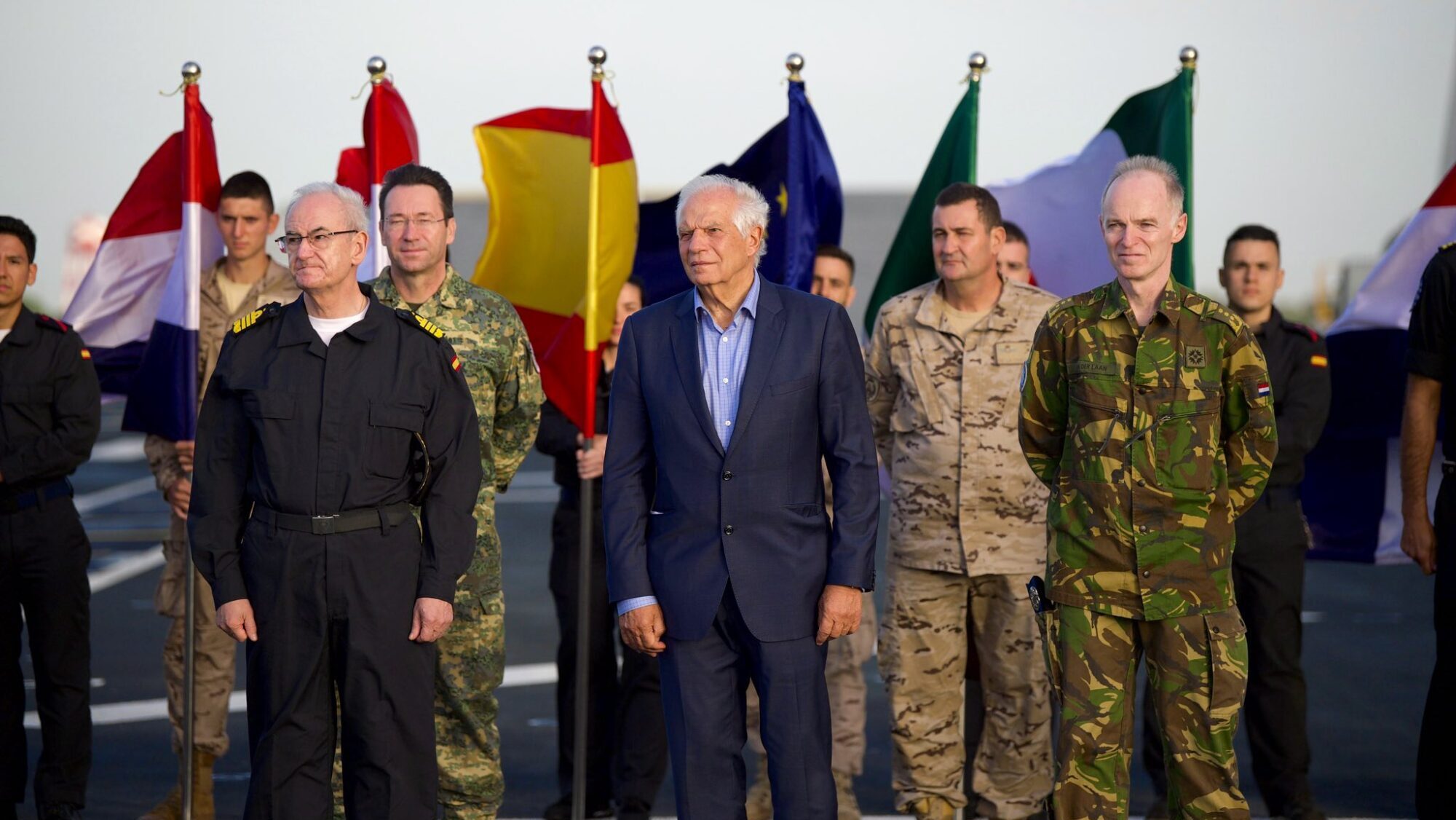
Josep Borrell (center) at the first-ever joint live EU military exercise.
Photo: Josep Borrell / Twitter/X
EU militarisation stepped up a notch as European troops completed what is likely just the first of many live exercises as one joint EU fighting unit off the coast of Cadiz in southern Spain.
For the first time, European militaries operated under a single flag to conduct a joint drill using actual troops and equipment. A total of 2,800 military personnel from 19 member states simulated the initial phase of a “stabilisation operation,” involving land, air, sea, and cyber components.
The joint exercises lasted from October 16th to 22nd and were led by the Spanish amphibious assault vessel Juan Carlos I. They were welcomed by the head of the EU’s foreign policy wing Josep Borrell, who subsequently emphasised the need to accelerate the creation of an EU army in the face of geopolitical insecurity.
Eurocrats have been scrambling to assert the EU’s common defensive capabilities, long the bugbear of eurosceptics. The effort comes amid criticism that Brussels has been overstepped by NATO. EU Internal Market Commissioner Thierry Breton has vowed to ramp up weapons production in order to reduce reliance on the United States.
While the exercises occurred without incident, one defence consultant formerly with the British Army lambasted the “capability gaps” in the way a prospective EU army would conduct warfare. This criticism coincided with Brussels’ struggles in maintaining a coherent policy line for the ongoing Gaza crisis.
The joint exercises are also seen as the dress rehearsal for the debut of EU Rapid Deployment Units later this year. These will consist of 5,000-person commando units, and Brussels elites hope that they will be able to respond to the emergence of sudden crises.
Various EU militaries are already in the process of integrating their defence procurement policies. Eurofederalists see the creation of a single EU army as essential to ensuring the bloc’s geopolitical voice is heard on the world stage.
Political critics from the left and the right have long warned that the emergence of an EU army would severely undermine the power of individual member states and electorates to set their own foreign policy. However, these concerns have been largely swept aside as the bloc seeks to militarise in the aftermath of the Ukraine crisis.
The bones of a European army already exist in the form of the joint development framework PESCO, the European Defence Agency (EDA) as well as EU Battlegroups which have been criticised as militarily sluggish due to a lack of political will.
